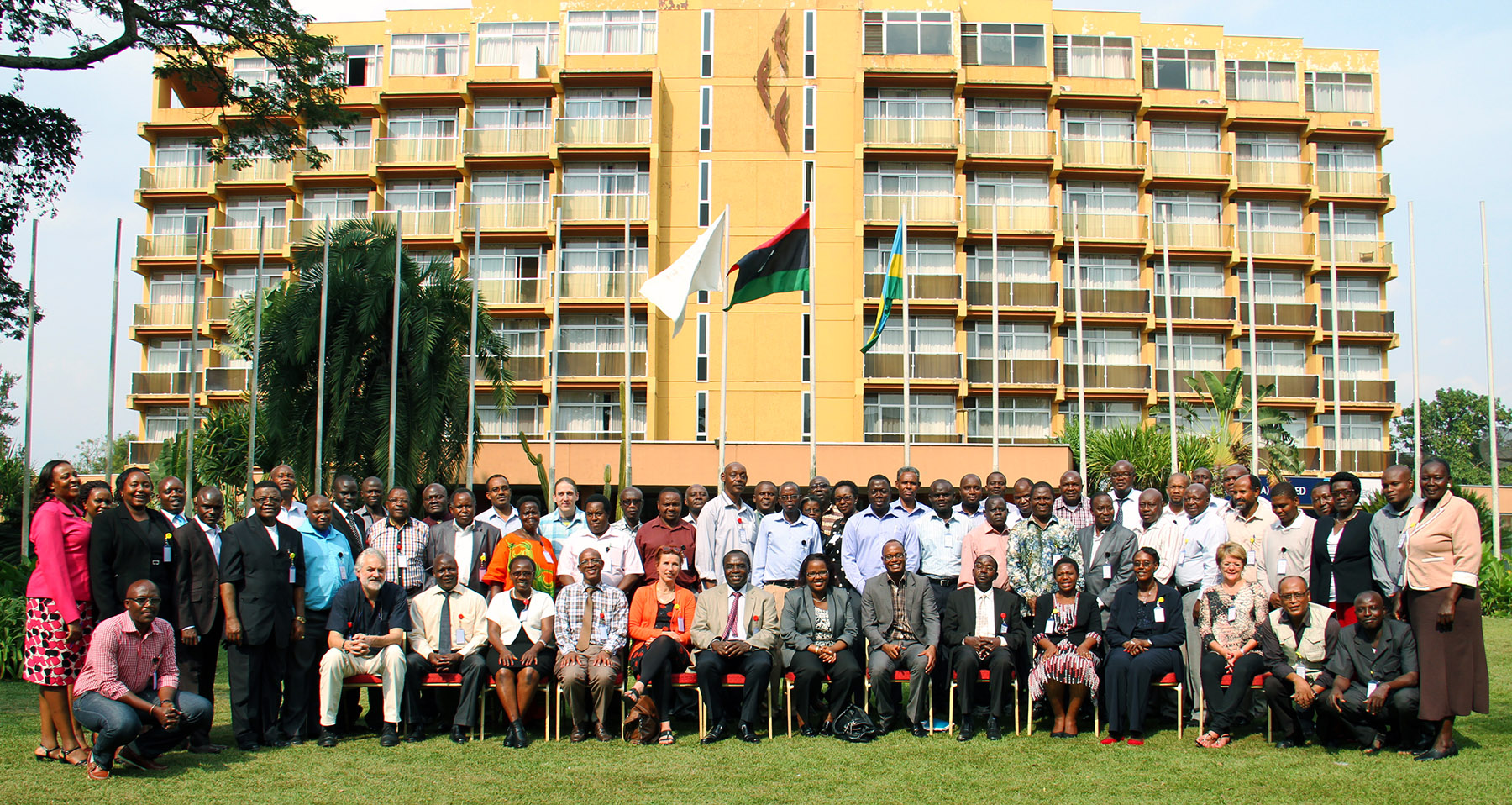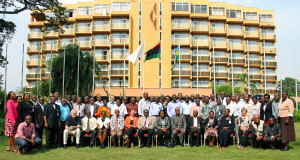If you had to choose just one word that captures the essence of bean research in Sub-Saharan Africa it is ‘partnership’ – between researchers, farmers, policymakers, nutritionists, private sector service providers and every other actor along the bean value chain.
From the moment Dr Gerardine Mukeshima, Rwanda’s Minister of Agriculture and Animal Resources, opened the joint Pan-Africa Bean Research Alliance (PABRA) network steering committee meeting in Kigali, Rwanda, 2 to 7 February 2015, to the closing remarks, partnership and collaboration were at the heart of every discussion.
Without partnership, those PABRA member countries without breeding programmes, such as Cameroon and Burundi, would not have been able to test and release new bean varieties; beans would not be part of Madagascar’s school feeding programme, which will help reduce malnutrition levels among children and support local farmers; and the private sector would not be engaged in bean markets in Kenya or Zimbabwe, helping to improve seed systems and lift farmer incomes…
The aim of the meeting, jointly organised and hosted by the Rwanda Agriculture Board (RAB) and the International Center for Tropical Agriculture (CIAT), which facilitates PABRA, was to share bean research and development outcome highlights from the last five years; enable future opportunities for collaboration to find solutions to on-going and new challenges; and develop research activities for the coming year.
But most of all, it was a space for learning.
Lessons learned
While every country has differing agro ecological zones, agricultural policies, culture and markets, each faces similar challenges when it comes to developing sustainable and nutrition sensitive bean value chains.
“It’s good to learn what others are doing across the network – to hear about their experiences and see if their solutions to challenges could be applied in your own country”, said David Karanja, bean programme leader at the Kenya Agriculture and Livestock Research Organisation (KALRO).
So what exactly was learnt?
- Rose Mutuku, Managing Director of Smart Logistics Ltd, Kenya, and PABRAs private sector representative stated the importance of working with the private-sector. Through her grain bulking business, she works with farmer groups to develop demand-led markets. “When farmers work individually the value chain becomes very expensive. By working with farmers, we can gather higher quantities of beans for the market, which gives farmers more power and better value for money for their crops.”
- Sharing and adaptation of germplasm enables quick release of varieties even where the capacity for breeding is relatively low. During the meeting, Anna Itwari Felix, bean programme leader from South Sudan, identified two new bean varieties that she hadn’t seen before. The beauty of the PABRA partnership means she can take them back for testing.
- Value-addition including reduction of post-harvest losses are the drivers for increased productivity, better market access and improved incomes to farmers
- Biofortification is encouraged to improve the nutritional value and raising the profile of beans in people’s diets to fight malnutrition
- Research should be value-chain oriented and respond to market demands
- Strong strategic partnerships (especially with the private sector) are essential to promote, disseminate and commercialise bean varieties and products
- Recognising and supporting local seed producer groups increases access to quality seed of improved bean varieties especially where the private sector is not developed
- Multiple release of varieties for similar agroecological zones in different countries, for example, as has happened in some countries in southern Africa, facilitates quick access to and commercialization of improved varieties
- Identifying business opportunities and engaging with the private sector is an incentive for attracting private-sector funding for research
- Farmer organisation and empowerment, and stakeholder platforms are the most viable mechanisms for sustainable development of markets for beans and bean products
The meeting also included a field trip to Musanze, the heart of climbing beans, where they saw RAB research in action and met farmers who have benefited from bean research.
The forefront of bean research
It was no coincidence that the meeting was held in Rwanda. As a founding member of PABRA and the ‘mother of climbing beans’, Rwanda has much experience and research to share.
As Robin Buruchara, CIATs Regional Director for Africa, said: “There is a special reason why the meeting was in Rwanda. Rwanda has been in the forefront of bean research and has made many contributions beyond East Africa network. Technologies developed here are now standard practice across PABRA partners.”
Minister, Dr Gerardine Mukeshima, herself a bean breeder, added: “The fruitful partnership in bean research between RAB and CIAT dates back more than 30 years.”
Future research
While there have been many achievements within the partnership, discussions also highlighted many challenges for which researchers need to find solutions.
The wider dissemination of new varieties is an ongoing challenge, which has led to fewer farmers growing them. Finding new and improved methods to disseminate newly developed varieties, and addressing other factors that constrain farmer adoption will help increase take up. For example, climbing beans offer great potential for increasing yields and incomes but lack of staking materials were highlighted as a major barrier for many farmers.
The good news is, because of the focus on partnership, finding solutions to these challenges, and developing more market-led approaches to research will be a collaborative effort, extending beyond country boundaries.


